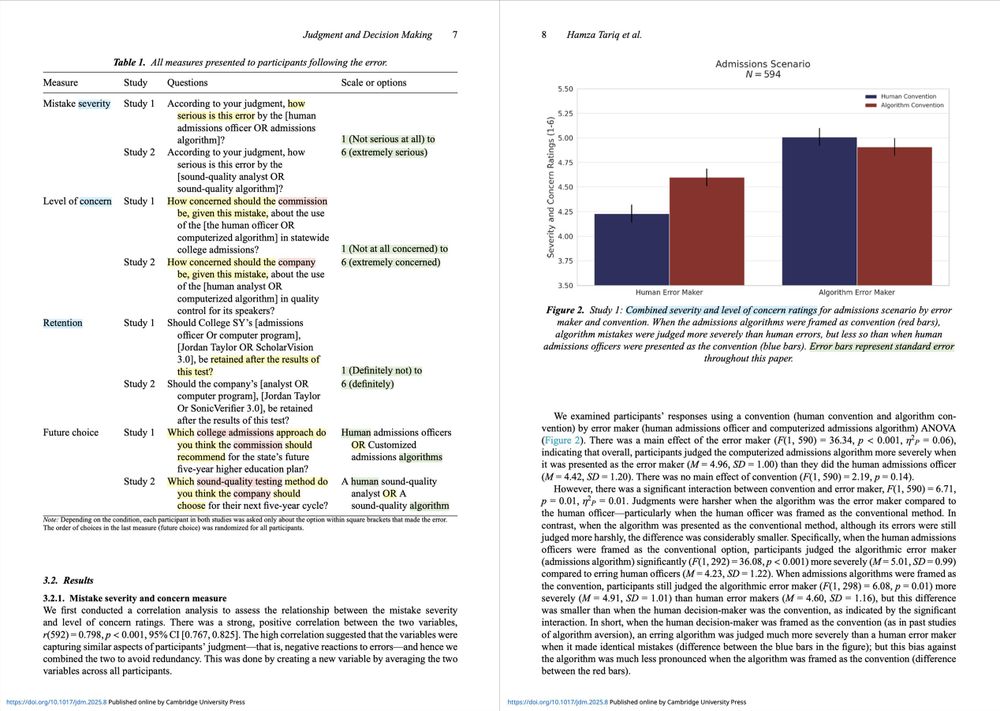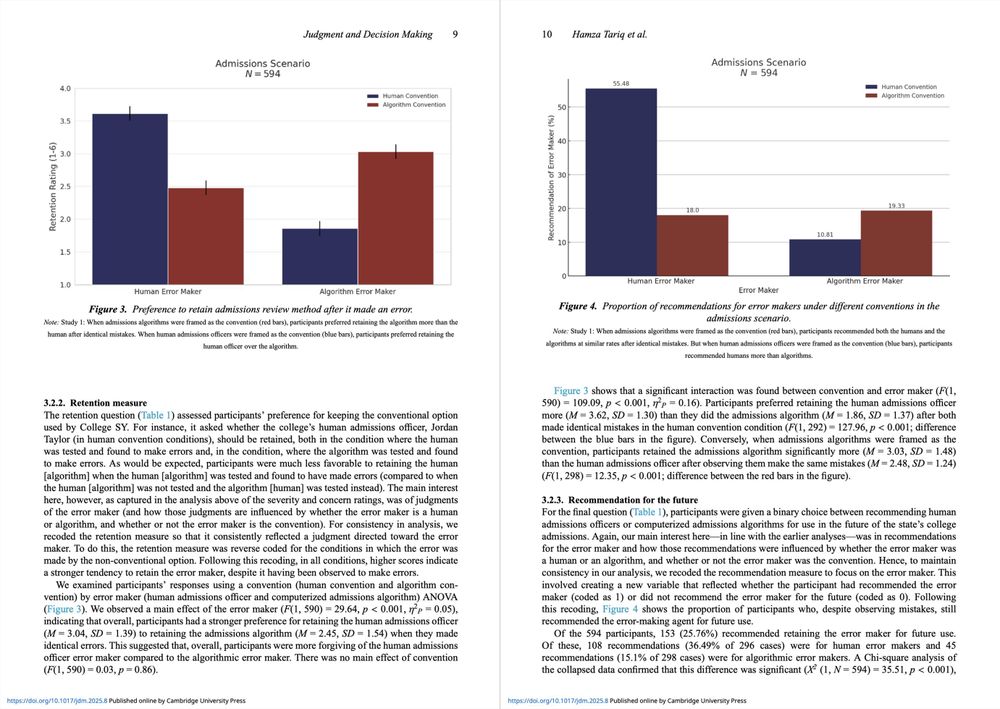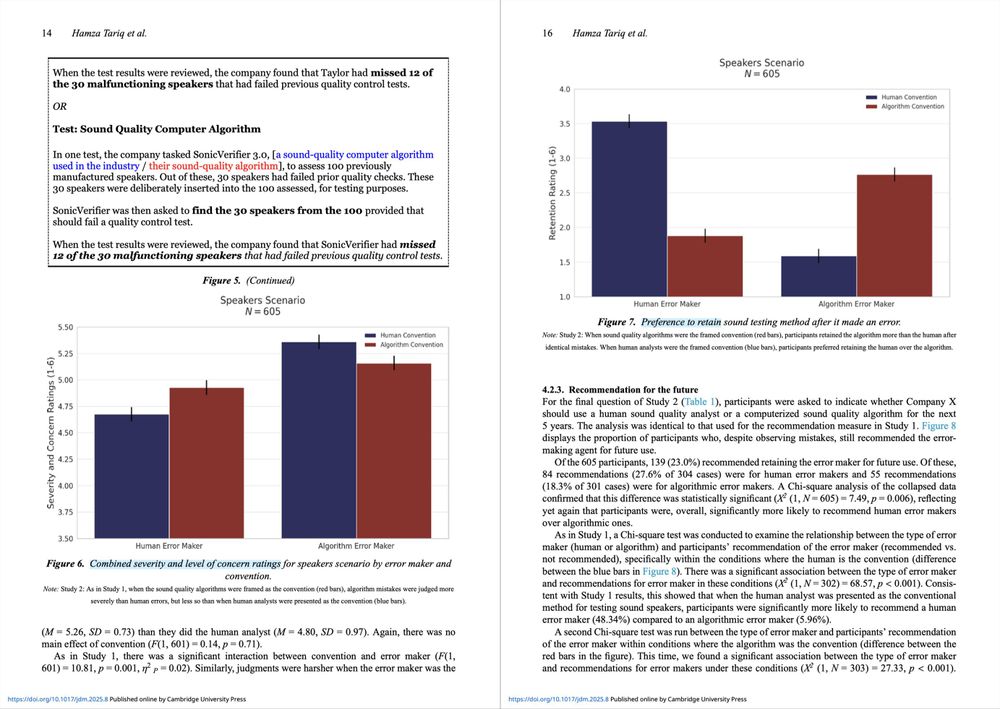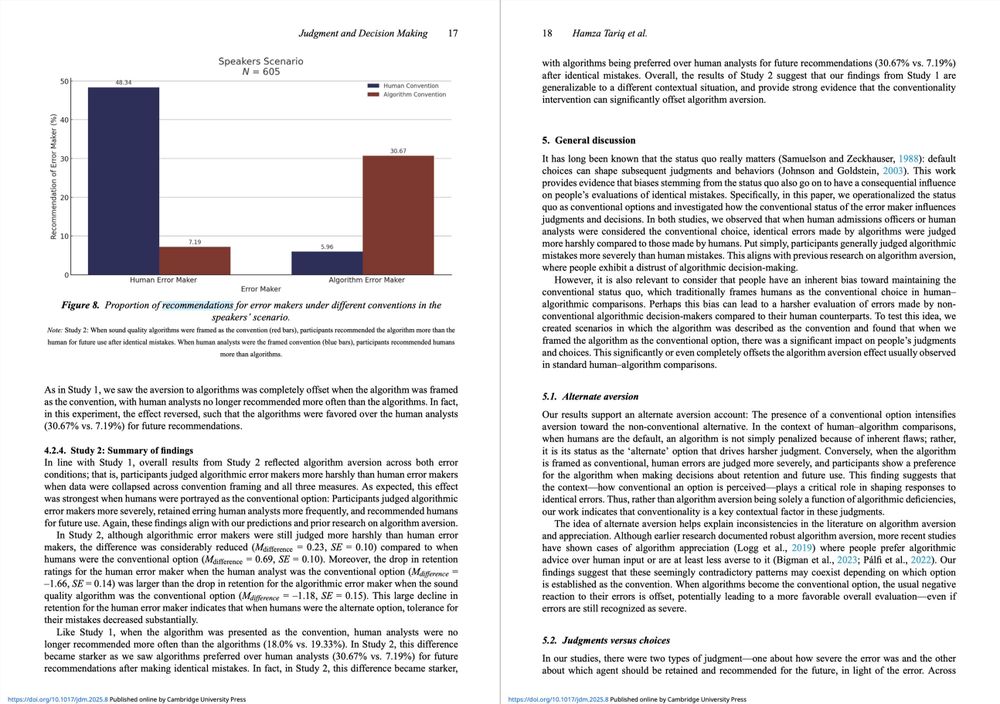Contrary to #algorithmAversion, people liked advice that aligned with their #biases (even if it came from an algorithm).
To learn when these data are published, follow Dr. Plonsky: scholar.google.com/citations?hl...




Contrary to #algorithmAversion, people liked advice that aligned with their #biases (even if it came from an algorithm).
To learn when these data are published, follow Dr. Plonsky: scholar.google.com/citations?hl...
First @oriplonsky.bsky.social shared experiments finding that people preferred advice that aligned with their own biases, even if the advice was from an algorithm — contrary to #algorithmAversion.
bsky.app/profile/byrd...
Contrary to #algorithmAversion, people liked advice that aligned with their #biases (even if it came from an algorithm).
To learn when these data are published, follow Dr. Plonsky: scholar.google.com/citations?hl...




First @oriplonsky.bsky.social shared experiments finding that people preferred advice that aligned with their own biases, even if the advice was from an algorithm — contrary to #algorithmAversion.
bsky.app/profile/byrd...
#Tech #AI #ArtificialIntelligence #AlgorithmAversion #AIEthics #TechnologyShift #HumanVsMachine #FutureOfAI #AlgorithmBias #TechTrends #MachineLearning #CognitivePsychology
the-14.com/as-the-statu...

#Tech #AI #ArtificialIntelligence #AlgorithmAversion #AIEthics #TechnologyShift #HumanVsMachine #FutureOfAI #AlgorithmBias #TechTrends #MachineLearning #CognitivePsychology
the-14.com/as-the-statu...
Telling people a decision is typically made by machines eliminated or even reversed the #bias.
🔓 doi.org/10.1017/jdm....
#AI #cogSci #xPhi #business #edu #tech




Telling people a decision is typically made by machines eliminated or even reversed the #bias.
🔓 doi.org/10.1017/jdm....
#AI #cogSci #xPhi #business #edu #tech
When patients were conscious or AI seemed more competent, the #algorithmAversion #bias faded.
doi.org/10.1016/j.co...
#medicine #bioethics

![There is a clear linear trend from AI-AI teaming to Human-Human teaming in moral approval of a passive euthanasia decision (2a: B = 0.59, 95 % CI: [0.39, 0.80], F(1,282) = 32.27, p < .001; 2b:B = 0.75, 95 % CI: [0.51, 0.98], F(1,403) = 38.55, p < .001). In Study 2b, there is a clear drop between the condition where the recommender and the decision-maker are both people, compared to the other two conditions. Jittered gray data points are individual observations; larger blue points are group-wise means. Error bars are 95 % CIs.](https://cdn.bsky.app/img/feed_thumbnail/plain/did:plc:jf4udtyuylqocyyrqdwqoxuf/bafkreicvtxgznrzpruc4p6dj4qy2uosxa6775gadzgugiahorch5hw2d3a@jpeg)


When patients were conscious or AI seemed more competent, the #algorithmAversion #bias faded.
doi.org/10.1016/j.co...
#medicine #bioethics

